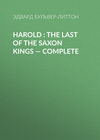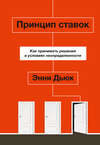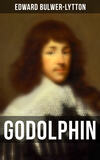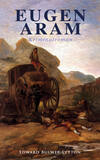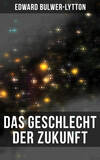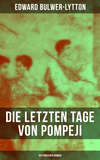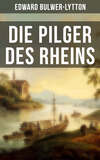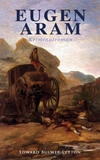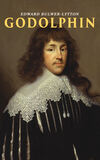Buch lesen: «Harold : the Last of the Saxon Kings — Complete»
DEDICATORY EPISTLE
TO THE RIGHT HON. C. T. D’EYNCOURT, M.P
I dedicate to you, my dear friend, a work, principally composed under your hospitable roof; and to the materials of which your library, rich in the authorities I most needed, largely contributed.
The idea of founding an historical romance on an event so important and so national as the Norman Invasion, I had long entertained, and the chronicles of that time had long been familiar to me. But it is an old habit of mine, to linger over the plan and subject of a work, for years, perhaps, before the work has, in truth, advanced a sentence; “busying myself,” as old Burton saith, “with this playing labour—otiosaque diligentia ut vitarem torporen feriendi.”
The main consideration which long withheld me from the task, was in my sense of the unfamiliarity of the ordinary reader with the characters, events, and, so to speak, with the very physiognomy of a period ante Agamemnona; before the brilliant age of matured chivalry, which has given to song and romance the deeds of the later knighthood, and the glorious frenzy of the Crusades. The Norman Conquest was our Trojan War; an epoch beyond which our learning seldom induces our imagination to ascend.
In venturing on ground so new to fiction, I saw before me the option of apparent pedantry, in the obtrusion of such research as might carry the reader along with the Author, fairly and truly into the real records of the time; or of throwing aside pretensions to accuracy altogether;—and so rest contented to turn history into flagrant romance, rather than pursue my own conception of extracting its natural romance from the actual history. Finally, not without some encouragement from you, (whereof take your due share of blame!) I decided to hazard the attempt, and to adopt that mode of treatment which, if making larger demand on the attention of the reader, seemed the more complimentary to his judgment.
The age itself, once duly examined, is full of those elements which should awaken interest, and appeal to the imagination. Not untruly has Sismondi said, that the “Eleventh Century has a right to be considered a great age. It was a period of life and of creation; all that there was of noble, heroic, and vigorous in the Middle Ages commenced at that epoch.” 1 But to us Englishmen in especial, besides the more animated interest in that spirit of adventure, enterprise, and improvement, of which the Norman chivalry was the noblest type, there is an interest more touching and deep in those last glimpses of the old Saxon monarchy, which open upon us in the mournful pages of our chroniclers.
I have sought in this work, less to portray mere manners, which modern researches have rendered familiar to ordinary students in our history, than to bring forward the great characters, so carelessly dismissed in the long and loose record of centuries; to show more clearly the motives and policy of the agents in an event the most memorable in Europe; and to convey a definite, if general, notion of the human beings, whose brains schemed, and whose hearts beat, in that realm of shadows which lies behind the Norman Conquest;
“Spes hominum caecos, morbos, votumque, labores,
Et passim toto volitantes aethere curas.” 2
I have thus been faithful to the leading historical incidents in the grand tragedy of Harold, and as careful as contradictory evidences will permit, both as to accuracy in the delineation of character, and correctness in that chronological chain of dates without which there can be no historical philosophy; that is, no tangible link between the cause and the effect. The fictitious part of my narrative is, as in “Rienzi,” and the “Last of the Barons,” confined chiefly to the private life, with its domain of incident and passion, which is the legitimate appanage of novelist or poet. The love story of Harold and Edith is told differently from the well-known legend, which implies a less pure connection. But the whole legend respecting the Edeva faira (Edith the fair) whose name meets us in the “Domesday” roll, rests upon very slight authority considering its popular acceptance 3; and the reasons for my alterations will be sufficiently obvious in a work intended not only for general perusal, but which on many accounts, I hope, may be entrusted fearlessly to the young; while those alterations are in strict accordance with the spirit of the time, and tend to illustrate one of its most marked peculiarities.
More apology is perhaps due for the liberal use to which I have applied the superstitions of the age. But with the age itself those superstitions are so interwoven—they meet us so constantly, whether in the pages of our own chroniclers, or the records of the kindred Scandinavians—they are so intruded into the very laws, so blended with the very life, of our Saxon forefathers, that without employing them, in somewhat of the same credulous spirit with which they were originally conceived, no vivid impression of the People they influenced can be conveyed. Not without truth has an Italian writer remarked, “that he who would depict philosophically an unphilosophical age, should remember that, to be familiar with children, one must sometimes think and feel as a child.”
Yet it has not been my main endeavour to make these ghostly agencies conducive to the ordinary poetical purposes of terror, and if that effect be at all created by them, it will be, I apprehend, rather subsidiary to the more historical sources of interest than, in itself, a leading or popular characteristic of the work. My object, indeed, in the introduction of the Danish Vala especially, has been perhaps as much addressed to the reason as to the fancy, in showing what large, if dim, remains of the ancient “heathenesse” still kept their ground on the Saxon soil, contending with and contrasting the monkish superstitions, by which they were ultimately replaced. Hilda is not in history; but without the romantic impersonation of that which Hilda represents, the history of the time would be imperfectly understood.
In the character of Harold—while I have carefully examined and weighed the scanty evidences of its distinguishing attributes which are yet preserved to us—and, in spite of no unnatural partiality, have not concealed what appear to me its deficiencies, and still less the great error of the life it illustrates,—I have attempted, somewhat and slightly, to shadow out the ideal of the pure Saxon character, such as it was then, with its large qualities undeveloped, but marked already by patient endurance, love of justice, and freedom—the manly sense of duty rather than the chivalric sentiment of honour—and that indestructible element of practical purpose and courageous will, which, defying all conquest, and steadfast in all peril, was ordained to achieve so vast an influence over the destinies of the world.
To the Norman Duke, I believe, I have been as lenient as justice will permit, though it is as impossible to deny his craft as to dispute his genius; and so far as the scope of my work would allow, I trust that I have indicated fairly the grand characteristics of his countrymen, more truly chivalric than their lord. It has happened, unfortunately for that illustrious race of men, that they have seemed to us, in England, represented by the Anglo-Norman kings. The fierce and plotting William, the vain and worthless Rufus, the cold-blooded and relentless Henry, are no adequate representatives of the far nobler Norman vavasours, whom even the English Chronicler admits to have been “kind masters,” and to whom, in spite of their kings, the after liberties of England were so largely indebted. But this work closes on the Field of Hastings; and in that noble struggle for national independence, the sympathies of every true son of the land, even if tracing his lineage back to the Norman victor, must be on the side of the patriot Harold.
In the notes, which I have thought necessary aids to the better comprehension of these volumes, my only wish has been to convey to the general reader such illustrative information as may familiarise him more easily with the subject-matter of the book, or refresh his memory on incidental details not without a national interest. In the mere references to authorities I do not pretend to arrogate to a fiction the proper character of a history; the references are chiefly used either where wishing pointedly to distinguish from invention what was borrowed from a chronicle, or when differing from some popular historian to whom the reader might be likely to refer, it seemed well to state the authority upon which the difference was founded. 4
In fact, my main object has been one that compelled me to admit graver matter than is common in romance, but which I would fain hope may be saved from the charge of dulness by some national sympathy between author and reader; my object is attained, and attained only, if, in closing the last page of this work, the reader shall find that, in spite of the fictitious materials admitted, he has formed a clearer and more intimate acquaintance with a time, heroic though remote, and characters which ought to have a household interest to Englishmen, than the succinct accounts of the mere historian could possibly afford him.
Thus, my dear D’Eyncourt, under cover of an address to yourself, have I made to the Public those explanations which authors in general (and I not the least so) are often overanxious to render.
This task done, my thoughts naturally fly back to the associations I connected with your name when I placed it at the head of this epistle. Again I seem to find myself under your friendly roof; again to greet my provident host entering that gothic chamber in which I had been permitted to establish my unsocial study, heralding the advent of majestic folios, and heaping libraries round the unworthy work. Again, pausing from my labour, I look through that castle casement, and beyond that feudal moat, over the broad landscapes which, if I err not, took their name from the proud brother of the Conqueror himself; or when, in those winter nights, the grim old tapestry waved in the dim recesses, I hear again the Saxon thegn winding his horn at the turret door, and demanding admittance to the halls from which the prelate of Bayeux had so unrighteously expelled him 5—what marvel, that I lived in the times of which I wrote, Saxon with the Saxon, Norman with the Norman—that I entered into no gossip less venerable than that current at the Court of the Confessor, or startled my fellow-guests (when I deigned to meet them) with the last news which Harold’s spies had brought over from the Camp at St. Valery? With all those folios, giants of the gone world, rising around me daily, more and more, higher and higher—Ossa upon Pelion—on chair and table, hearth and floor; invasive as Normans, indomitable as Saxons, and tall as the tallest Danes (ruthless host, I behold them still!)—with all those disburied spectres rampant in the chamber, all the armour rusting in thy galleries, all those mutilated statues of early English kings (including St. Edward himself)—niched into thy grey, ivied walls—say in thy conscience, O host, (if indeed that conscience be not wholly callous!) shall I ever return to the nineteenth century again?
But far beyond these recent associations of a single winter (for which heaven assoil thee!) goes the memory of a friendship of many winters, and proof to the storms of all. Often have I come for advice to your wisdom, and sympathy to your heart, bearing back with me, in all such seasons, new increase to that pleasurable gratitude which is, perhaps, the rarest, nor the least happy sentiment, that experience leaves to man. Some differences, it may be,—whether on those public questions which we see, every day, alienating friendships that should have been beyond the reach of laws and kings;—or on the more scholastic controversies which as keenly interest the minds of educated men,—may at times deny to us the idem velle, atque idem nolle; but the firma amicitia needs not those common links; the sunshine does not leave the wave for the slight ripple which the casual stone brings a moment to the surface.
Accept, in this dedication of a work which has lain so long on my mind, and been endeared to me from many causes, the token of an affection for you and yours, strong as the ties of kindred, and lasting as the belief in truth.
E. B. L.
PREFACE TO THE THIRD EDITION
The author of an able and learned article on MABILLON 6 in the “Edinburgh Review,” has accurately described my aim in this work; although, with that generous courtesy which characterises the true scholar, in referring to the labours of a contemporary, he has overrated my success. It was indeed my aim “to solve the problem how to produce the greatest amount of dramatic effect at the least expense of historical truth”—I borrow the words of the Reviewer, since none other could so tersely express my design, or so clearly account for the leading characteristics in its conduct and completion.
There are two ways of employing the materials of History in the service of Romance: the one consists in lending to ideal personages, and to an imaginary fable, the additional interest to be derived from historical groupings: the other, in extracting the main interest of romantic narrative from History itself. Those who adopt the former mode are at liberty to exclude all that does not contribute to theatrical effect or picturesque composition; their fidelity to the period they select is towards the manners and costume, not towards the precise order of events, the moral causes from which the events proceeded, and the physical agencies by which they were influenced and controlled. The plan thus adopted is unquestionably the more popular and attractive, and, being favoured by the most illustrious writers of historical romance, there is presumptive reason for supposing it to be also that which is the more agreeable to the art of fiction.
But he who wishes to avoid the ground pre-occupied by others, and claim in the world of literature some spot, however humble, which he may “plough with his own heifer,” will seek to establish himself not where the land is the most fertile, but where it is the least enclosed. So, when I first turned my attention to Historical Romance, my main aim was to avoid as much as possible those fairer portions of the soil that had been appropriated by the first discoverers. The great author of Ivanhoe, and those amongst whom, abroad and at home, his mantle was divided, had employed History to aid Romance; I contented myself with the humbler task to employ Romance in the aid of History,—to extract from authentic but neglected chronicles, and the unfrequented storehouse of Archaeology, the incidents and details that enliven the dry narrative of facts to which the general historian is confined,—construct my plot from the actual events themselves, and place the staple of such interest as I could create in reciting the struggles, and delineating the characters, of those who had been the living actors in the real drama. For the main materials of the three Historical Romances I have composed, I consulted the original authorities of the time with a care as scrupulous, as if intending to write, not a fiction but a history. And having formed the best judgment I could of the events and characters of the age, I adhered faithfully to what, as an Historian, I should have held to be the true course and true causes of the great political events, and the essential attributes of the principal agents. Solely in that inward life which, not only as apart from the more public and historical, but which, as almost wholly unknown, becomes the fair domain of the poet, did I claim the legitimate privileges of fiction, and even here I employed the agency of the passions only so far as they served to illustrate what I believed to be the genuine natures of the beings who had actually lived, and to restore the warmth of the human heart to the images recalled from the grave.
Thus, even had I the gifts of my most illustrious predecessors, I should be precluded the use of many of the more brilliant. I shut myself out from the wider scope permitted to their fancy, and denied myself the license to choose or select materials, alter dates, vary causes and effects according to the convenience of that more imperial fiction which invents the Probable where it discards the Real. The mode I have adopted has perhaps only this merit, that it is my own—mine by discovery and mine by labour. And if I can raise not the spirits that obeyed the great master of romance, nor gain the key to the fairyland that opened to his spell,—at least I have not rifled the tomb of the wizard to steal my art from the book that lies clasped on his breast.
In treating of an age with which the general reader is so unfamiliar as that preceding the Norman Conquest, it is impossible to avoid (especially in the earlier portions of my tale) those explanations of the very character of the time which would have been unnecessary if I had only sought in History the picturesque accompaniments to Romance. I have to do more than present an amusing picture of national manners—detail the dress, and describe the banquet. According to the plan I adopt, I have to make the reader acquainted with the imperfect fusion of races in Saxon England, familiarise him with the contests of parties and the ambition of chiefs, show him the strength and the weakness of a kindly but ignorant church; of a brave but turbulent aristocracy; of a people partially free, and naturally energetic, but disunited by successive immigrations, and having lost much of the proud jealousies of national liberty by submission to the preceding conquests of the Dane; acquiescent in the sway of foreign kings, and with that bulwark against invasion which an hereditary order of aristocracy usually erects, loosened to its very foundations by the copious admixture of foreign nobles. I have to present to the reader, here, the imbecile priestcraft of the illiterate monk, there, the dark superstition that still consulted the deities of the North by runes on the elm bark and adjurations of the dead. And in contrast to those pictures of a decrepit monarchy and a fated race, I have to bring forcibly before the reader the vigorous attributes of the coming conquerors,—the stern will and deep guile of the Norman chief—the comparative knowledge of the rising Norman Church—the nascent spirit of chivalry in the Norman vavasours; a spirit destined to emancipate the very people it contributed to enslave, associated, as it imperfectly was, with the sense of freedom: disdainful, it is true, of the villein, but proudly curbing, though into feudal limits, the domination of the liege. In a word, I must place fully before the reader, if I would be faithful to the plan of my work, the political and moral features of the age, as well as its lighter and livelier attributes, and so lead him to perceive, when he has closed the book, why England was conquered, and how England survived the Conquest.
In accomplishing this task, I inevitably incur the objections which the task itself raises up,—objections to the labour it has cost; to the information which the labour was undertaken in order to bestow; objections to passages which seem to interrupt the narrative, but which in reality prepare for the incidents it embraces, or explain the position of the persons whose characters it illustrates,—whose fate it involves; objections to the reference to authorities, where a fact might be disputed, or mistaken for fiction; objections to the use of Saxon words, for which no accurate synonyms could be exchanged; objections, in short, to the colouring, conduct, and composition of the whole work; objections to all that separate it from the common crowd of Romances, and stamp on it, for good or for bad, a character peculiarly its own. Objections of this kind I cannot remove, though I have carefully weighed them all. And with regard to the objection most important to story-teller and novel reader—viz., the dryness of some of the earlier portions, though I have thrice gone over those passages, with the stern determination to inflict summary justice upon every unnecessary line, I must own to my regret that I have found but little which it was possible to omit without rendering the after narrative obscure, and without injuring whatever of more stirring interest the story, as it opens, may afford to the general reader of Romance.
As to the Saxon words used, an explanation of all those that can be presumed unintelligible to a person of ordinary education, is given either in the text or a foot-note. Such archaisms are much less numerous than certain critics would fain represent them to be: and they have rarely indeed been admitted where other words could have been employed without a glaring anachronism, or a tedious periphrase. Would it indeed be possible, for instance, to convey a notion of the customs and manners of our Saxon forefathers without employing words so mixed up with their daily usages and modes of thinking as “weregeld” and “niddering”? Would any words from the modern vocabulary suggest the same idea, or embody the same meaning?
One critic good-humouredly exclaims, “We have a full attendance of thegns and cnehts, but we should have liked much better our old friends and approved good masters thanes and knights.” Nothing could be more apposite for my justification than the instances here quoted in censure; nothing could more plainly vindicate the necessity of employing the Saxon words. For I should sadly indeed have misled the reader if I had used the word knight in an age when knights were wholly unknown to the Anglo-Saxon and cneht no more means what we understand by knight, than a templar in modern phrase means a man in chain mail vowed to celibacy, and the redemption of the Holy Sepulchre from the hands of the Mussulman. While, since thegn and thane are both archaisms, I prefer the former; not only for the same reason that induces Sir Francis Palgrave to prefer it, viz., because it is the more etymologically correct; but because we take from our neighbours the Scotch, not only the word thane, but the sense in which we apply it; and that sense is not the same that we ought to attach to the various and complicated notions of nobility which the Anglo-Saxon comprehended in the title of thegn. It has been peremptorily said by more than one writer in periodicals, that I have overrated the erudition of William, in permitting him to know Latin; nay, to have read the Comments of Caesar at the age of eight.—Where these gentlemen find the authorities to confute my statement I know not; all I know is, that in the statement I have followed the original authorities usually deemed the best. And I content myself with referring the disputants to a work not so difficult to procure as (and certainly more pleasant to read than) the old Chronicles. In Miss Strickland’s “Lives of the Queens of England,” (Matilda of Flanders,) the same statement is made, and no doubt upon the same authorities.
More surprised should I be (if modern criticism had not taught me in all matter’s of assumption the nil admirari), to find it alleged that I have overstated not only the learning of the Norman duke, but that which flourished in Normandy under his reign; for I should have thought that the fact of the learning which sprung up in the most thriving period of that principality; the rapidity of its growth; the benefits it derived from Lanfranc; the encouragement it received from William, had been phenomena too remarkable in the annals of the age, and in the history of literature, to have met with an incredulity which the most moderate amount of information would have sufficed to dispel. Not to refer such sceptics to graver authorities, historical and ecclesiastical, in order to justify my representations of that learning which, under William the Bastard, made the schools of Normandy the popular academies of Europe, a page or two in a book so accessible as Villemain’s “Tableau du Moyen Age,” will perhaps suffice to convince them of the hastiness of their censure, and the error of their impressions.
It is stated in the Athenaeum, and, I believe, by a writer whose authority on the merits of opera singers I am far from contesting but of whose competence to instruct the world in any other department of human industry or knowledge I am less persuaded, “that I am much mistaken when I represent not merely the clergy but the young soldiers and courtiers of the reign of the Confessor, as well acquainted with the literature of Greece and Rome.”
The remark, to say the least of it, is disingenuous. I have done no such thing. This general animadversion is only justified by a reference to the pedantry of the Norman Mallet de Graville—and it is expressly stated in the text that Mallet de Graville was originally intended for the Church, and that it was the peculiarity of his literary information, rare in a soldier (but for which his earlier studies for the ecclesiastical calling readily account, at a time when the Norman convent of Bec was already so famous for the erudition of its teachers, and the number of its scholars,) that attracted towards him the notice of Lanfranc, and founded his fortunes. Pedantry is made one of his characteristics (as it generally was the characteristic of any man with some pretensions to scholarship, in the earlier ages;) and if he indulges in a classical allusion, whether in taunting a courtier or conversing with a “Saxon from the wealds of Kent,” it is no more out of keeping with the pedantry ascribed to him, than it is unnatural in Dominie Sampson to rail at Meg Merrilies in Latin, or James the First to examine a young courtier in the same unfamiliar language. Nor should the critic in question, when inviting his readers to condemn me for making Mallet de Graville quote Horace, have omitted to state that de Graville expressly laments that he had never read, nor could even procure, a copy of the Roman poet—judging only of the merits of Horace by an extract in some monkish author, who was equally likely to have picked up his quotation second-hand.
So, when a reference is made either by Graville, or by any one else in the romance, to Homeric fables and personages, a critic who had gone through the ordinary education of an English gentleman would never thereby have assumed that the person so referring had read the poems of Homer themselves—he would have known that Homeric fables, or personages, though not the Homeric poems, were made familiar, by quaint travesties 7, even to the most illiterate audience of the gothic age. It was scarcely more necessary to know Homer then than now, in order to have heard of Ulysses. The writer in the Athenaeum is acquainted with Homeric personages, but who on earth would ever presume to assert that he is acquainted with Homer?
Some doubt has been thrown upon my accuracy in ascribing to the Anglo-Saxon the enjoyments of certain luxuries (gold and silver plate—the use of glass, etc.), which were extremely rare in an age much more recent. There is no ground for that doubt; nor is there a single article of such luxury named in the text, for the mention of which I have not ample authority.
I have indeed devoted to this work a degree of research which, if unusual to romance, I cannot consider superfluous when illustrating an age so remote, and events unparalleled in their influence over the destinies of England. Nor am I without the hope, that what the romance-reader at first regards as a defect, he may ultimately acknowledge as a merit;—forgiving me that strain on his attention by which alone I could leave distinct in his memory the action and the actors in that solemn tragedy which closed on the field of Hastings, over the corpse of the Last Saxon King.
